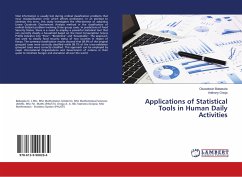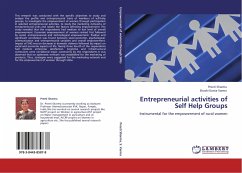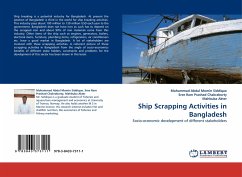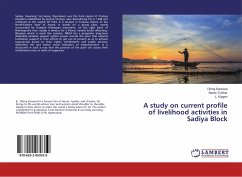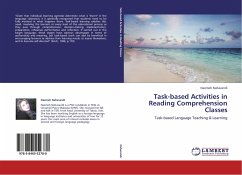
Task-based Activities in Reading Comprehension Classes
Task-based Language Teaching & Learning
Versandkostenfrei!
Versandfertig in 6-10 Tagen
39,99 €
inkl. MwSt.

PAYBACK Punkte
20 °P sammeln!
Given that individual learning agendas determine what is "learnt" in the language classroom, it is generally recognized that students need to be fully involved in what happens there. Task-based learning satisfies this need, involving the learners at every level of the educational process as they pass through comprehension, decision-making, implementation, preparation, rehearsal, performance and reflection. If carried out in the target language, these stages have obvious advantages in terms of authenticity and meaning, but task-based work can also be beneficial in encouraging learners to addres...
Given that individual learning agendas determine what is "learnt" in the language classroom, it is generally recognized that students need to be fully involved in what happens there. Task-based learning satisfies this need, involving the learners at every level of the educational process as they pass through comprehension, decision-making, implementation, preparation, rehearsal, performance and reflection. If carried out in the target language, these stages have obvious advantages in terms of authenticity and meaning, but task-based work can also be beneficial in encouraging learners to address their learning needs, to assess themselves, and to become self-directed (Finch, 1999, p.179).





